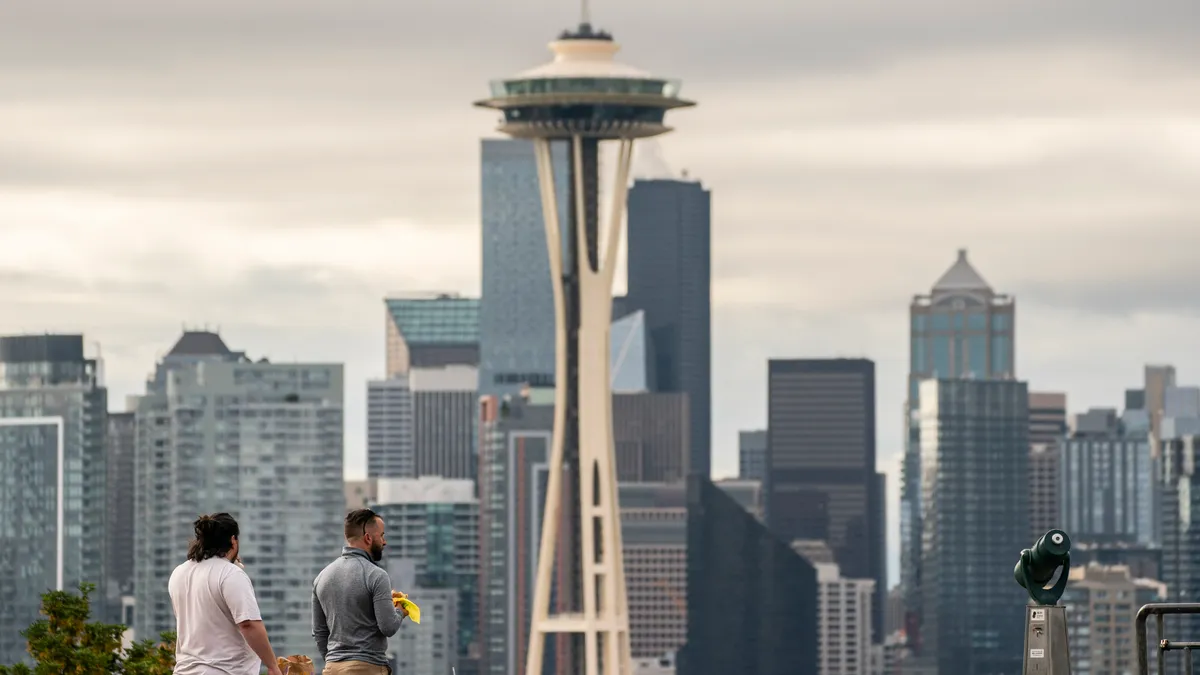Dive Brief:
- Uber Eats has agreed to pay over $3.3 million to nearly 10,500 gig workers in Seattle for alleged violations of the city’s Gig Worker Premium Pay Ordinance, the Seattle Office of Labor Standards announced in a press release Thursday.
- This settlement is one of the largest under the Covid-19 Gig Worker Protections Ordinances, which were passed in 2020 as part of Seattle’s expanded worker protections. This particular law is set to expire on Oct. 31.
- Seattle OLS alleged that Uber Eats failed to pay drivers a required sum when workers picked up and delivered items from select drug stores or arrived at pickup locations to find them closed or the orders canceled.
Dive Insight:
The premium pay ordinance requires companies to pay gig workers $2.50 per order when the order is picked up or dropped off in Seattle. The OLS alleged that Uber Eats paid workers $.025 per order for a brief window in 2022 due to a software error. Uber Eats has not yet responded to a request for comment, but the company expressed satisfaction with the OLS’ operations in the OLS press release.
“The vast majority of workers received their premium pay without any issues,” Zahid Arab, Uber’s public affairs manager for the West region, said in the release. “We’re grateful that the Seattle Office of Labor Standards worked in partnership with us to immediately correct certain technical glitches, pay all premium pay owed to the workers, and improve our systems to ensure accurate and prompt payments in the future.”
Sarah Fletcher, an Uber Eats worker quoted in the OLS statement, said prior to the premium pay law, hourly rates for gig workers in Seattle averaged between $6 and $9 an hour. She added that the premium pay has increased worker compensation.
The OLS settlement coincides with the tail-end of protections extended under the city’s civil emergency for the COVID-19 pandemic. In recent months, cities have abandoned or weakened many regulations on delivery companies that were implemented during the initial period of the pandemic. Seattle and San Francisco both weakened their delivery fee caps. But labor regulations have proven somewhat stickier, with major cities pursuing large settlements under newer laws passed to strengthen worker protections. Seattle, for instance, passed a suite of laws to raise gig worker pay earlier this year.














